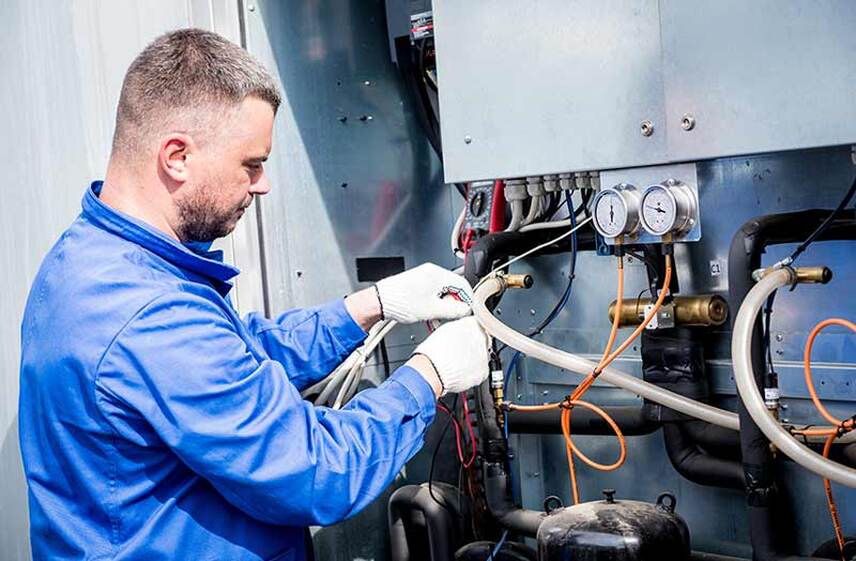Available 24/7
Greensboro (336) 498-7609
Wilmington (910) 228-5199
Raleigh (336) 498-7609
Available 24/7
Greensboro (336) 498-7609
Wilmington (910) 228-5199
Raleigh (336) 498-7609
It’s okay if you don’t know much about commercial HVAC systems. Our team of HVAC professionals are highly trained and experienced so you don’t have to be. Below you will find the answers to our most common questions regarding our HVAC services.
With your hectic schedule, you probably don't pay much attention to the little vent plugging away in your wall. But while you go about your life, your air filtration system is busy sifting pollutants, animal dander, pollen, and dust out of the air you breathe. When your air filters are never changed, they can negatively impact your family, your HVAC system, and your utility bills. To ensure that this small but important task doesn’t fall by the wayside during your everyday hustle and bustle, we highly recommend scheduling regular air filter maintenance throughout the year.
Heating and cooling systems in a large facility work incredibly hard to perform their everyday functions. The constant stopping, starting, and continual operation will wear the machinery down over time. By performing regular preventative maintenance, you can maximize the lifespan of your equipment and guard against any failures that may occur.
Heat pumps and air conditioners require a professional tune-up at least once a year. Gas-fired equipment, which functions with greater efficiency, only needs to be serviced every other year. Boilers and furnaces should be inspected twice a year. Facilities which are significantly large or which process high-contaminant materials may require more inspections.
Since the American Lung Association estimates that most people spend 90% of their time indoors, poor indoor air quality is a significant health risk. Long-term conditions caused by poor air quality include asthma, respiratory disease, heart disease, and lung cancer.
Yes. No matter how clean a building is, compounds in the carpeting, furniture, upholstery, and drapery fabric are constantly releasing fibers. Cleaning agents, paints, and personal care products also emit chemicals into the air. The more well-constructed and well-sealed a building is, the worse the air quality tends to be because the air is kept inside, resulting in a buildup of contaminants.
There are three types of HVAC commissioning. Initial commissioning is performed during the construction of a new facility or on a new HVAC system. Retro-commissioning is the first time commissioning has been performed on an existing building on existing HVAC equipment. Finally, re-commissioning is the verification, improvement, and documentation of HVAC systems which have already been commissioned once before.
The vast majority of commercial boilers are too small for the size of the area they heat. Any boiler that is less than 300,000 BTUs is considered a residential boiler, and is not large enough for the facility. An HVAC technician can perform a heat loss inspection to determine the proper boiler size for your facility.
There are two primary mechanisms by which water is cooled inside a cooling tower. Sensible heat transfer occurs when the heat from the incoming water is absorbed by the colder air. Then, the bulk of the cooling that takes place inside the cooling tower (>80%) is driven by evaporation of the water itself. Evaporation requires energy (heat), so when water is evaporated within the fill media in a cooling tower, heat is removed with the water vapor and leaves in the exiting air stream from the top of the tower. The result is that the remaining water is cooled significantly, even to temperatures below the actual ambient temperature.
There are many green energy options for your business. The most popular form of renewable energy is solar heating. Solar panels can be installed on your southern-facing roof to generate heat, electricity, and indoor and outdoor light. Another option is geothermal energy, which makes use of the constant temperature near the earth’s surface to provide heating and cooling energy.

Contact Superior Mechanical Inc.
We offer quality commercial and industrial HVAC services.
We provide quality Commercial HVAC repair and installation, Heating and Air Emergency Services, and Air Quality upgrades.